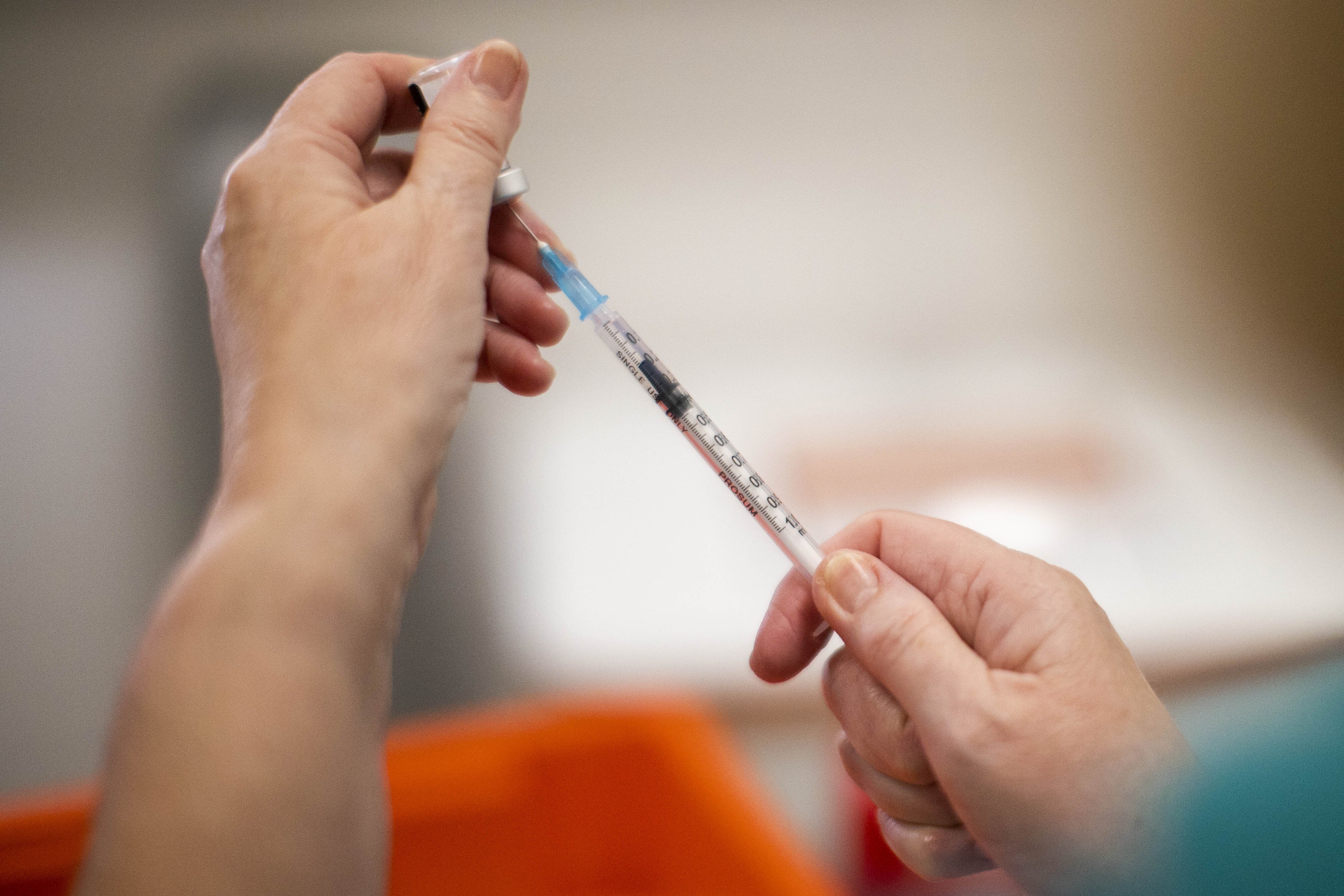Health Secretary urges older people to ‘top up’ their Covid vaccines
The NHS in England is inviting people to arrange the spring jab through the national booking service when it is their turn.

People should “top up” their Covid-19 jabs when called by the NHS, the Health Secretary has said, as preparations continue for an autumn campaign that could include everyone aged 50 and over.
Sajid Javid urged those aged 75 and over and the vulnerable to accept invitations for the spring Covid booster, with people becoming eligible if they had their last vaccine six months ago.
The NHS in England is inviting people to arrange the spring jab through the national booking service when it is their turn. This can be accessed online at nhs.uk/covidvaccine or by calling 119.
Rollout of the booster has already started in Wales and Scotland.
It comes as the NHS in England has been told to prepare for a 15-week autumn Covid campaign from September to December.
The NHS England planning document says the health service should prepare for a “minimum scenario” to offer vaccination to groups 1 to 6 as set down by the Joint Committee on Vaccination and Immunisation (JCVI).
This includes care home residents and staff, frontline NHS and social care workers, people deemed at risk due to underlying health conditions plus all those aged 65 and over.
A “maximum scenario” includes everyone aged 50 and over.
The JCVI has said an autumn jab campaign is likely to be needed to protect those most at risk of severe Covid.
Mr Javid told BBC Breakfast the JCVI has said “it’s possible there will be an autumn booster campaign, probably for those that are 50 and over, but they haven’t yet made a final recommendation on that”.
He added that, despite rising Covid cases, the Government’s “level of concern hasn’t changed”.
He said: “Our level of concern hasn’t changed and that’s because, although case numbers are rising, infections are rising and indeed hospital numbers are rising, they are still way below their peak.
“And it’s also important for us when we review this, to understand why they are rising and that is primarily due to the increased social mixing we’re seeing after the country’s opened up, but also the BA.2 sub-variant of Omicron which we know is on the one hand more infectious but, on the other hand, we know that our vaccines work just as well against this sub-variant.
“And so, taking all that into account, of course we keep the data under review, but there’s no particular cause for concern at this point.”
Speaking to Times Radio, Mr Javid said 11,500 people in English hospitals have Covid-19 but the majority of them have not been admitted because of the virus.
He said the NHS “estimates almost 60% are not there because of Covid – they are there for something else.”
He added: “That might be a hip operation or something, but they happen to be Covid-positive.”
The Health Secretary stressed, however, that people with Covid symptoms should “socialise a bit less, stay indoors” and and wait until they feel better.
He said it would be down to the individual to decide whether or not to take a test after free testing for all adults in England ends on April 1.
“Post-April 1 if people have Covid symptoms, then they should just behave sensibly – like you would expect someone to really behave if they had flu symptoms in the past – and that is to socialise a bit less, stay indoors and and wait till you feel better,” he said.
Mr Javid said there was a “need to step back and think about how we learn to live with Covid and focus on our very best form of defence and that’s the vaccination programme”.
It comes as Cardiff University announced doctors have successfully used vaccination to treat a patient with Covid-19 in what is thought to be the first instance of a jab being used for therapy.
Ian Lester, 37, a dispensing optician from Pontypridd who has a rare genetic immunodeficiency, continued to test positive for Covid for seven and a half months after catching the virus.
Medics from the Immunodeficiency Centre for Wales used two doses of the Pfizer vaccine to treat him and scientists from Cardiff monitored the response as he got the all-clear.
Bookmark popover
Removed from bookmarks